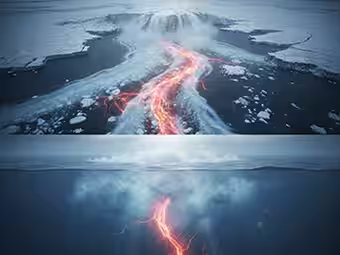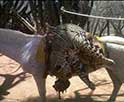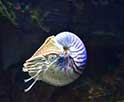The Weakening of the AMOC Current: An Imminent Danger to Global Climate
AMOC at Risk: Are We on the Brink of Drastic Climate Change?
Reading time: 1 minute, Discovery Chepe Id-801-ECO
Published on 08-31-2025

Photo: Gonzalo Facello. A vital system for our planet: the AMOC current transports warm water along the surface (in red) and returns cold, dense water in the depths (in blue), acting as the conveyor belt that regulates global climate.
The Atlantic Meridional Overturning Circulation (AMOC) is one of the planet's most crucial ocean systems. This massive current moves heat from tropical regions to the North Atlantic, stabilizing the climate in Europe, the Americas, and beyond. However, recent research reveals an alarming trend: the AMOC is weakening faster than expected.
What is AMOC?
The AMOC works like a conveyor belt. Warm, salty water flows northward, cools, sinks, and returns southward in the deep ocean. This circulation, driven by temperature and salinity differences, is essential for the balance of Earth's climate.

The Consequences of AMOC Current Weakening: What You Need to Know
Signs of weakening
Studies in Nature and National Geographic show that the AMOC is at its weakest point in over a thousand years. Greenland's rapid ice melt and the influx of freshwater into the North Atlantic are disrupting the sinking process that powers this system.
The dangers ahead
a) Severe climate shifts: A weaker AMOC could cause colder winters in Europe, heatwaves in the Americas, and major disruptions in African and Asian monsoons.
b) Rising sea levels: A slowdown could push sea levels higher along the US east coast.
c) Threats to biodiversity: Sudden thermal changes in the ocean could destabilize marine food webs.
An uncertain future
While climate models cannot determine the exact timing of a potential collapse, scientists agree that continuing greenhouse gas emissions could push the AMOC to an irreversible tipping point this century. Humanity's urgent challenge is to cut emissions and protect this ocean engine that sustains life on Earth.
See Also
Discovery Chepe
Most read...















